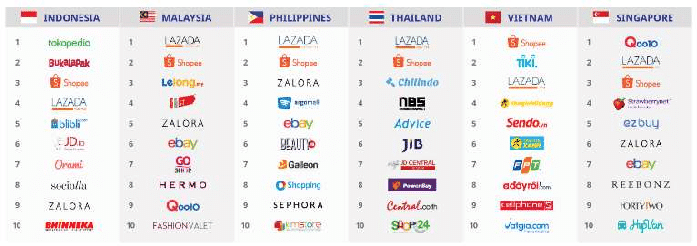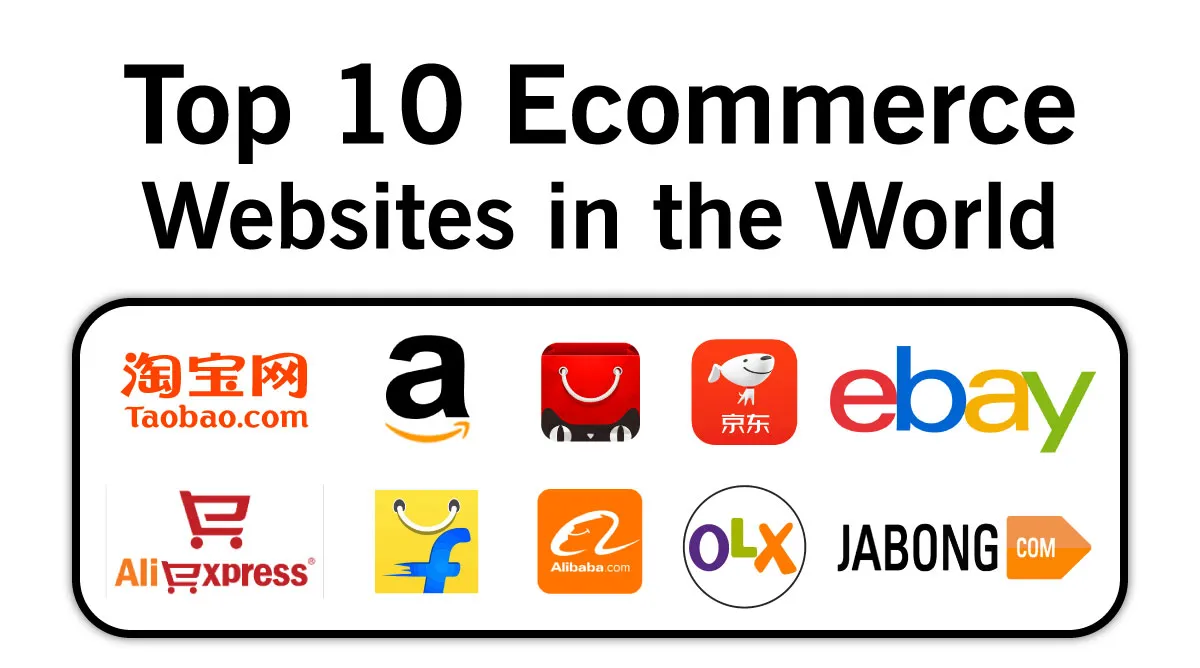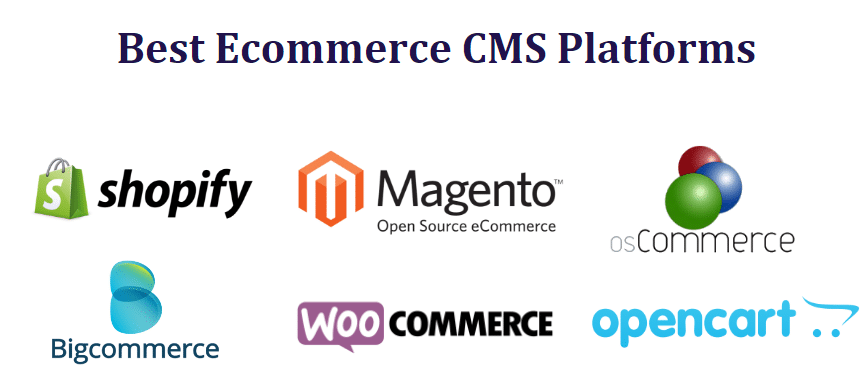E-commerce is the activity of electronically buying or selling of products on online services or over the Internet.. You must be familiar with the existence of e-commerce, especially people who like to shop online on the internet.
Are you one of the groups of people who like online shopping? That’s right, most people probably really like shopping, both women and men, not even age adrift can have a consumptive nature.
But do you really understand what e commerce is? Well, you need to know that thanks to the Internet, technological developments have opened up new business opportunities. The emergence of e-commerce is one of them. But do you know what e commerce is, does this business help you to fulfill satisfaction in consumptive behavior?
Well, e-commerce is all activities related to online transactions that take place via the internet or other electronic networks. However, in general, you know e-commerce is an online shopping activity that involves buying and selling physical or digital products over the Internet. In fact, e-commerce also includes activities such as buying and selling, banking, and providing services.
So, this article will discuss all of these things, from e-commerce to the development of e-commerce:
Definition of E-Commerce
What is e-commerce? Ecommerce or electronic commerce is the trading of goods and services on the internet. It is your bustling city center or brick-and-mortar shop translated into zeroes and ones on the internet superhighway.
For television and telephone it is available, but more e-commerce occurs over the Internet. Technological developments, especially the Internet, affect many areas of life, including retail. Trade has changed in terms of the process of buying and selling and marketing of products. This trading process is commonly known as electronic commerce or e-commerce for short.
The definition of e-commerce according to Laudon & Laudon is the process of selling and buying goods electronically by consumers, which is a business-to-business transaction with a computer intermediary, namely using a computer network.

David Baum (1999) then also defines e-commerce as a set of dynamic technologies with application forms and business processes that connect businesses, consumers, and society through e-commerce in exchanging goods, services, and information electronically.
This understanding of e-commerce can lead to misunderstandings about how e-commerce systems and markets work. The term e-commerce is used to describe all transactions using electronic media.
While the marketplace itself is one of the e-commerce models and acts as an intermediary between sellers and buyers. Sellers trading in the market only need to buy. All other activities, such as website management, have been taken over by a web platform such as Shopee and Lazada as two examples of marketplaces.
This e-commerce offers many changes regarding the trading process. If the traditional buying and selling process requires face-to-face meetings between buyers and sellers, e-commerce no longer requires them. Buyers can trade in different cities without meetings and communicate via the internet. E-Commerce benefits buyers as well as sellers. Buyers save more money and time because they don’t have to go far to find the items they need.
In addition to these advantages, there are also disadvantages when processing buying and selling transactions via the Internet. The disadvantage is that the buyer cannot see the goods directly and hold the material from which they are made.
For example, if a buyer wants to buy clothes, the buyer’s image and perception of the purchase can be different from the product being sold because he cannot hold and touch the material used.
This led to disappointment among buyers. In the case of electronic products, the buyer may have difficulty managing the warranty, and the method of managing the warranty is not clear. When making online transactions, trust is the most important asset for sellers and buyers. Because they never met in person. If the seller makes a mistake or lies, the buyer won’t believe it.
Types of E Commerce
You may think that online transactions are only between sellers and buyers. However, e-commerce can be divided into six groups as follows:
- Business-to-business (B2B ) is a type of e-commerce in which one company sells products or services to another company. In this e-commerce model, buyers usually order goods in large quantities. An example is a company that buys office supplies from a manufacturer.
- Business-to-Consumer (B2C) In this type of e-commerce, companies sell products or services to consumers. In general, B2C e-commerce customers are only involved in the retail industry. This activity falls into this category if you have previously purchased something from an online store.
- Between Consumers (C2C) Have you ever sold used goods to other people in need via the Internet? These activities are included in this type of e-commerce. In other words, C2C is an online transaction between two people.
- Consumer to Business (C2B) is not like B2C. C2B e-commerce is a system where a person sells a product or service to a company. For example, graphic designers offer and sell logos to food companies.
- Business-to-Government (B2A) is an e-commerce model that is similar to B2B, but the actors are companies and government agencies. B2A example is a website creation service for an online management system.
- Consumer to Government (C2A) is a type of e-commerce that works like C2B. However, transactions are carried out by individuals and government agencies. Types of transactions that occur are usually in the form of services.

Example E-Commerce
As previously mentioned, there are six categories of e-commerce. Below are examples of each type of e-commerce. However, for example, government e-commerce customers are omitted from this list because there are rarely websites or marketplaces that connect freelancers with government agencies more seriously and focus on profit like doing business.
1. E-commerce Business to business (B2B)
- Electronic City is an e-commerce that sells electronic office and household supplies
- Apart from selling office and household equipment, Ralali also sells industrial, restaurant and agricultural equipment
- Mbiz is an e-commerce that is almost similar to Ralali, but also offers services such as housekeeping and wall repairs
2. Business to consumer (B2C)
- Gramedia.com is the largest e-commerce online bookstore in Indonesia which sells a variety of best seller books from a number of well-known publishers, stationery, school and office equipment to children’s toys. Not only that, Gramedia.com also provides sport & hobby equipment, musical instruments, fashion and accessories
- Lazada is an e-commerce that provides fashion, accessories, cosmetics and personal electronics
- Blibli is almost similar to e-commerce Lazada, but also sells furniture, children’s equipment and sports equipment
3. Customer to customer (C2C)
- OLX is an e-commerce that sells a variety of products, from personal use to vehicles and household appliances
- Tokopedia is almost similar to Shopee, but buyers can also find used goods here
- Kaskus is an open forum and users often sell used goods here
- Shopee is one of the largest platforms in Asia which has opened offices in various countries.
4. Customer to business (C2B)
- Freelancer is a website that provides expertise to companies that need freelancers
- Upwork is the same as Freelancer
- iStock is a website for businesses that need digital photos, videos, and illustrations for commercial use
5. Business To Public Administration (B2A)
- Qlue is a website that provides software to support businesses and government agencies, such as vehicle management systems and analytics applications
- Accela supports Government Governments with the Software as a Service Concept
Benefits of e-Commerce
The development of the e-commerce industry is very rapid. With so many online businesses, you may be wondering what are the benefits of e-commerce? Here are some of the benefits you can get from e-commerce:
- Broad Reach – As a traditional shop owner, you can only contact buyers from the same area. Whether you have an e-commerce website or not, the impact will be different. The first advantage of e-commerce is that shoppers across the country can trade in your store.
- Unlimited Hours Or Not Limited By Time – Business in the real world can be done 24 hours a day, but the cost to support it is very large. Shoppers can access stores and shop online, even when they are sleeping soundly. The benefits of e-commerce are certainly very beneficial here for all of us.
- Low Costs – The operating costs of online installations are much lower than physical stores. At least, you don’t need to think about employee salaries, building rent, or electricity bills.
- No Need to Stock Your Own Goods – Buddy can become a dropshipper. This marketing method allows you to sell when out of stock. When the order arrives, simply transfer it to the manufacturer of the desired item.
- Process transactions and shipments easily – With online tools, you don’t have to worry about processing and shipping goods. Currently there are various electronic payment services that are processed on the Internet. Shipments can also be tracked online.
- Be able to learn customer habits – Running an online business without understanding customer behavior means you are wasting your investment in your business. Currently there are many analytical tools that can be used to check online store data, such as: Google Analytics.
- Work from Anywhere – As mentioned before, one of the benefits of e-commerce is that it is always accessible. Therefore, you can run it from anywhere with the right device and internet connection.

Benefits of a Website as an E Commerce Platform
Once you understand that e-commerce is profitable and can easily start a business, then it’s time to do it. There are at least three tools available for online selling.
Namely, online marketplaces (such as Tokopedia and Bukalapak), proprietary websites, and social media. Marketplaces and social media are of course the easy way. To get started, simply create an account and set up the business booth. In fact, there are no operational costs that must be incurred in advance.
This isn’t a mistake, but it’s still important to have a website that represents your store or business. The following are more significant website benefits for the e-commerce that you are currently running:
1. Build Credibility
Social media, or marketplace, is certainly an online storefront that is easy to use. However, there are not many ways to introduce yourself on either platform. In most cases, you can only briefly describe the product or service being offered.
The situation is different if your company has its own website. Websites give you the freedom to decide the design and functionality of the online store. For example, you can create a trade show booth advertisement that is simpler and easier for buyers to understand.
Additionally, according to a Verisign survey, 84% of consumers believe that online retailers who use a website are more reliable than those who only sell on social media. Therefore, you need a website to market your brand. Plus, 77% of potential buyers read product reviews online, and the website is a great place to contact them.
2. Serves as a Catalog
When selling items on social media or marketplaces, there is no option to describe the item. On the other hand, the appearance of the website can be adjusted as needed. For example, you can display different products with fonts to help potential buyers figure it out.
3. Improving Service to Buyers
Marketplaces and social media have chat or messaging capabilities that you can access at any time. However, managing incoming messages can be tedious when lots of people are already waiting to communicate with the store. Of course, don’t forget to answer questions from potential buyers. To solve this problem, you need a website with more qualified and organized chat or ticket capabilities.
4. Easier to Find Brands in Search Engines
According to a survey by GE Capital Retail Bank, 81% of people use search engines to survey their products before making a purchase. Additionally, 60% of shoppers visit an e-commerce site they find on a search engine before making a final purchase decision.
Of course, judging by these facts, selling in marketplaces or on social media doesn’t guarantee enough brand exposure. Consider trading independently from an e-commerce website rather than using an intermediary platform.
5. Many competitors use the website
Business competition on the Internet is very tight, especially if the products and services you sell are offered by many other vendors. While you are still trading on marketplaces, many competitors have branded themselves on online store sites, and potential buyers also use search engines to find brands they can trust. Please remember that it’s a good idea for you to use a website to market your business before the competition gets fierce.
6. Creating a Website is Easy and Cheap
It’s actually not easy for many people to start a website. In fact, the process is not as complicated as you might think. Before creating your first online store site, you only need to purchase hosting and domain services. Both do not require many sources of funds.
